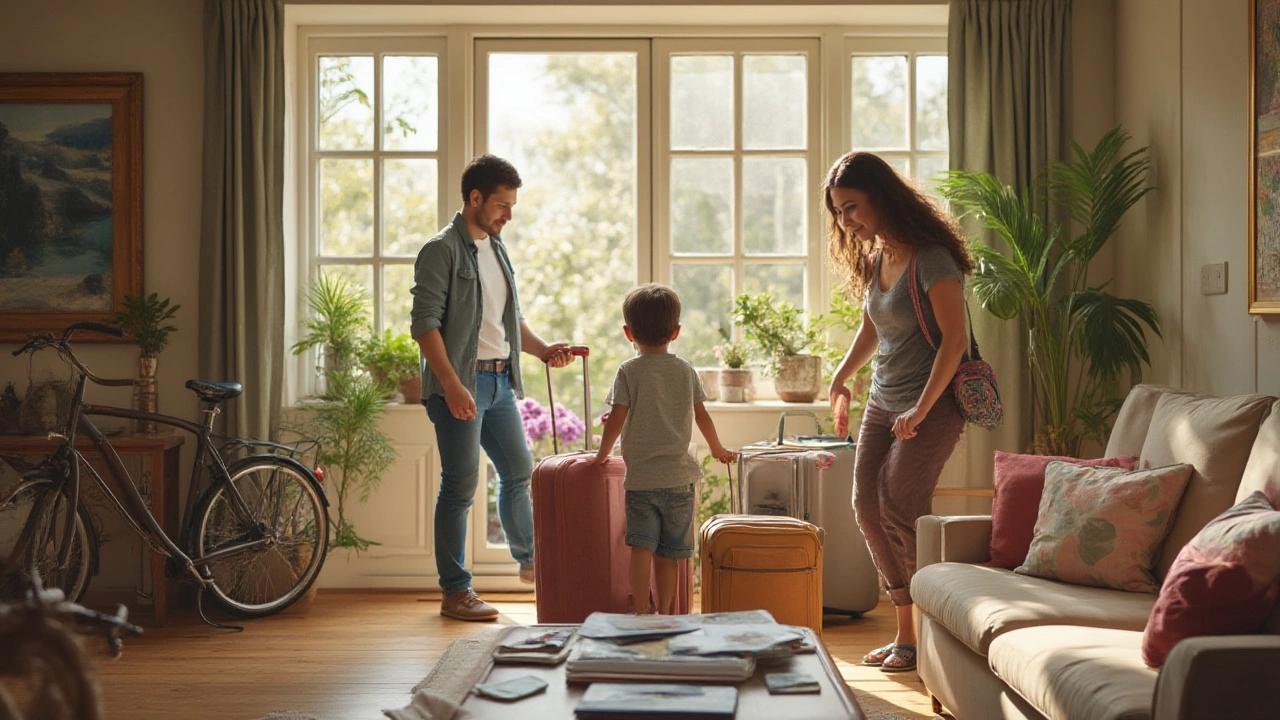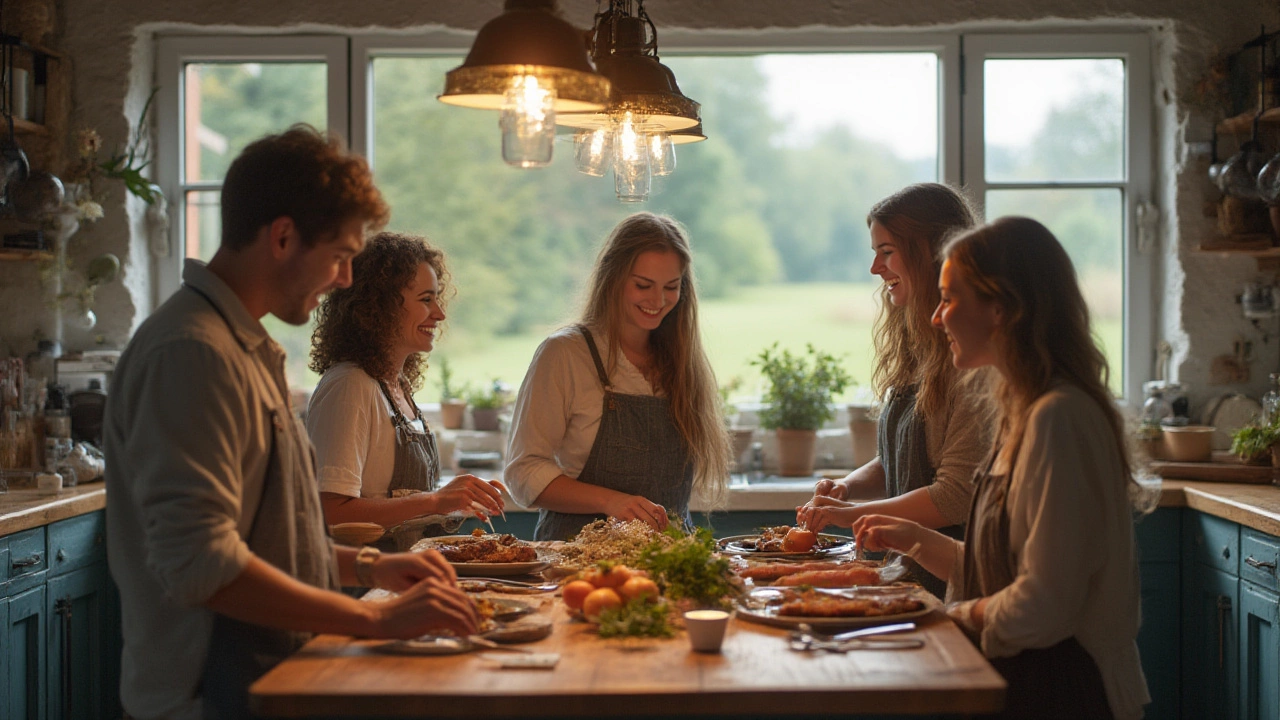Picture arriving at your holiday spot or new city and letting yourself in with a key tucked under a flowerpot. No overly cheerful concierge eyeing your every move, no strict meal times. Just you, your chosen people, and the kitchen you’ll inevitably be raiding in pajamas at midnight. That’s the freedom of self catered residences—a style of living that turns the traditional lodging experience on its head and puts you squarely in the driver’s seat.
What is a Self Catered Residence?
Self catered residences are accommodation options—anything from city apartments to rustic cottages, student halls, or seaside homes—where guests are given their own cooking and living facilities. You don’t rely on a hotel for meals; instead, you take charge of your daily rhythm, shopping, and food preparation. It’s a concept that’s become hugely popular, especially among holidaymakers craving independence and students moving away for the first time.
The appeal is easy: more space, privacy, and the chance to save money by avoiding restaurant prices. Typically, you’ll find a functional kitchen (sometimes a compact kitchenette, sometimes a sprawling gourmet space), living area, and bedrooms. Think of it as a home away from home, not just a bed for the night. Self catered residences can be ultra-modern city lofts, family-run holiday cottages, eco-friendly newbuilds, or even traditional rowhouses converted for visitors.
This setup isn’t new—farm stays and rural holiday cottages have long offered self catering—but the demand has exploded. The pandemic turbocharged the trend; fewer shared spaces, less exposure, more safety. According to a 2024 report from Statista, about 60% of European travellers prefer self catering options for trips longer than five nights. For students, universities report that first years who go self catered tend to develop better cooking skills and healthier eating habits. You’d be surprised how handy learning to cook a proper pasta becomes after living in student halls for a year.
In Ireland, more than half the university accommodations offer self catered units. You’ll find similar patterns in the UK, Australia, and North America. Holiday rental platforms like Airbnb and Vrbo boom on the back of this preference for autonomy. Even big hotel chains dabble, launching "apart-hotels" with mini-kitchens for guests wanting more than a minibar and a kettle.
What’s crucial to understand: There’s a difference between self catered and serviced apartments. The latter might offer amenities like cleaning or breakfast; in self catered places, you’re looking after those little tasks yourself. It’s not for everyone, but if you like the idea of coming and going as you please, it’s bliss.
What’s Included—And What Isn’t
The range of self catered accommodation is dizzying—think city-centre flats, country cottages, student apartments, ski chalets, and quirky treehouses (not kidding, I once stayed in a treehouse with Whiskers, my cat, and lived to tell the tale!). But here’s what you’ll typically get:
- Kitchen facilities: At minimum, you get a hob, oven or microwave, refrigerator, and basic crockery. Higher-end homes throw in dishwashers, coffee makers, and full spice racks.
- Private living and sleeping areas: Not just a bed. Expect a lounge, dining table, and usually one or more bedrooms.
- Linen and towels: Provided in most professional holiday rentals, but always check—sometimes in student digs, they’re missing.
- Wi-Fi: Mostly standard now, but rural spots can be patchy. Double-check if you need a guarantee for Zoom calls or Netflix binging.
Missing the daily made-up beds, midnight room service, or a breakfast buffet? You won’t find those here. Cleaning is on you unless arranged in advance. Some places offer weekly cleans; others leave you wholly responsible—definitely ask before arriving. There’s usually an expectation to leave things neat, sometimes even a list of cleaning tasks before checkout.
Most self catered residences don’t include food, unless there’s a welcome hamper or starter pack (juice, coffee, milk, and Irish soda bread if you’re lucky). You’ll often get some cleaning supplies, loo paper, and basic toiletries to get started.
Pets are a popular add-on these days; around 42% of self catered cottages in Ireland list as pet-friendly. This beats hotels hands down if, like me, you hate leaving your cat behind.
Last, check out the table below for a quick comparison of what’s typically included:
| Feature | Self Catered Residence | Hotel |
|---|---|---|
| Private kitchen | Yes | Rarely |
| Daily cleaning | No (unless added) | Yes |
| Food included | No | Yes (often) |
| Own laundry facilities | Often | No |
| Pets allowed | Sometimes | Rare |
| Space per person | More | Less |

Why People Choose Self Catered Residences
What pushes travellers, students, and families to ditch the safe predictability of hotels? I asked a group of Erasmus students in Dublin, and they all said the same thing: freedom. Self catered living lets you keep your own timetable. Fancy a late-night snack? No need to phone room service—just raid your own fridge. And if you’re travelling as a family or group, a shared kitchen means cheaper meals and more cozy evenings, squabbling over whose turn it is to wash up.
For students, self catered residences often mean a more social experience. You get to cook together, try each other’s recipes (sometimes brave, not always edible), and learn to plan meals and split chores. Most parents like that it forces teenagers to gain a bit of independence, ready or not.
Budget is a key driver, too. Self catered accommodation can cut your holiday food bill by up to 60%. According to data from the Irish Self Catering Federation from 2024, families save an average of €350 on a week-long holiday compared to eating out for every meal.
Another popular reason: longer stays. Whether you’re in town for a two-week work assignment, a summer semester, or a slow-paced holiday, having laundry, kitchen, and more room makes the whole stay feel less temporary. You settle in. This is partly why digital nomads (like me, at least part time) gravitate to self catered places; it just feels more relaxed to make coffee in your dressing gown without worrying about the staff seeing you first thing in the morning.
One more thing—safety and health. Especially since Covid, people value separate entrances, minimal contact, and a controlled environment. Plus, if you’ve got allergies or special diets, you’re finally in charge of what’s on your plate. Vegan friends of mine swear by self catering for this reason alone—no more mystery butter in the restaurant risotto.
- Greater flexibility of schedule and meals
- Bigger savings on food and longer stays
- Space to unwind and really "live" your routine
- More privacy—no maids knocking when you’re still in your jammies
- Easier for groups, families, and pet owners
It isn’t for everyone (cooking every night gets old, believe me), but for many, the pros totally outweigh the cons.
Tips and Pitfalls: What to Watch Out For
Before you book a self catered residence, do some digging. Photos can be deceiving. Zoom in on kitchens—do you spot an actual oven, not just a microwave? If you’re the sort who needs toast in the morning, look for a toaster on the counter. Read reviews carefully; guests are quick to mention if the "fully equipped" kitchen actually has three spoons and a single pan. Or if the Wi-Fi dissolves into thin air after dinner.
Here’s a smart checklist before you hand over your deposit:
- Ask about check-in arrangements. Will you be met in person, or is it a self-service lockbox? Late arrivals aren’t always welcome.
- Clarify laundry options. Weekly holidaymakers may not care, but students and long-term renters need this sorted. Some student halls charge outrageous fees for laundry use.
- Parking: Not always included, especially in city centre spots. Check if there’s free on-street parking, or if you need a permit.
- Pets: Even if the listing says yes, confirm in writing. Some places allow dogs but not cats (Whiskers, cover your ears).
- House rules: Are guests allowed? Are parties frowned on? Is there a "quiet hours" policy?
- Provisioning: Near shops or a rural outpost? It’s not fun arriving at 10 p.m. in the wilds of Donegal to find the nearest shop is 40 km away and you have zero snacks.
For longer stays, negotiate extras. Some property managers will arrange a starter pack, mid-stay clean, or even a supermarket delivery for your first night. It never hurts to ask.
And here’s a pitfall: the dreaded "shared kitchen syndrome" in student digs. If you move into a hall and share with 6-10 flatmates, expect a battle over fridge space and the washing up. My tip? Label everything. Letters from home never contained warnings as to how fiercely protective students can be of their cheese.
Finally, travel insurance is a good shout. Self catered means you’re responsible for any breakages or issues. Accidents happen (door handles mysteriously fall off, mugs break), and you don’t want to lose your deposit. Take photos when you arrive and flag any damage.
So, whether you crave control over your diet, can’t bear the thought of leaving your pets, or simply want to feel at home while you travel, self catered residences tick a lot of boxes. With a bit of prep and a healthy appetite for adventure (and cooking), you might never look at hotel breakfasts the same way again.
